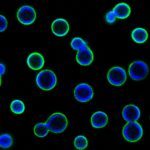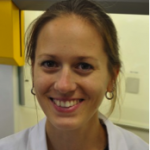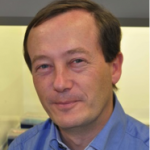EVALUATION OF NEW TOOLS
FOR THE DIAGNOSIS OF HISTOPLASMOSIS (Evadiag-Histo)
Aude Sturny-Leclère, Dea Garcia-Hermoso, Alexandre Alanio, Olivier Lortholary & Fanny Lanternier
In Sub-Saharan Africa and West African countries histoplasmosis is rarely diagnosed probably for several reasons: lack of epidemiological information, insufficient training and awareness of frontline healthcare workers, and clinical features very similar to those of tuberculosis that can be misleading. This fungal infection mainly affects immunocompromised patients and particularly advanced HIV-patients, with a high mortality rate in the absence of treatment (about 45%). The prevalence of this infections is poorly explored in particular in resource limited countries. The classical diagnostic methods are microscopic examination of yeasts with suggestive morphology in biological samples and a positive culture. However, microscopic examination requires expertise. Culture, on the other hand, requires prolonged incubation (often 2 to 8 weeks) and involves, when positive, handling colonies in a level 3 security laboratory. Moreover, classical methods frequently require invasive procedures to withdraw the samples.
Implementing non-invasive diagnostic tools will allow us to improve histoplasmosis diagnosis for the most exposed patients but also to evaluate the prevalence of this fungal infection in countries where data are still lacking. Rapid diagnostic tests (RDTs) such as the TB Lam for tuberculosis or the CrAg LFA for cryptococcosis have demonstrated their usefulness for the management of advanced HIV-patients with these pathologies.
Our objective is to evaluate two new RDTs recently available for the diagnosis of Histoplasma spp. based on urinary detection, to assess their performances and determine the prevalence of histoplasmosis.
These new tools represent simple procedures and they can be used in most of primary health care centers and/or at patient’s bedside in low and middle-resources countries. These RDTs seem very promising based on the results obtained in Latin America countries and Mexico but there is no data available yet in Africa.
Our approach involves the evaluation of the feasibility of the study and the determination of performance criteria using different sample collections recovered from patients with pathologies associated with HIV. This ANRS grant will be the opportunity to evaluate these tools on patients without a definitive diagnosis of tuberculosis and those associated with unexplained mortality despite the anti-tuberculosis treatment (STATIS cohort, ANRS_12290). With new diagnostic tools, an appropriate training of clinicians and laboratory teams and the accessibility to treatment, the diagnosis of histoplasmosis will be improved.





